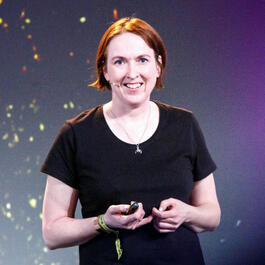
Kate Devlin, "Turned On: Science, Sex and Robots" (Bloomsbury, 2018)
The idea of the seductive sex robot is the stuff of myth, legend and science fiction. From the ancient Greeks to twenty-first century movies, robots in human form have captured our imagination, our hopes and our fears. But beyond the fantasies there are real and fundamental questions about our relationship with technology as it moves into the realm of robotics. Artificial intelligence raises very real concerns. Sexual activity is central to our very existence; it shapes how we think, how we act and how we live. With advances in technology come machines that may one day think independently. What will happen to us when we form close relationships with these intelligent systems? In Turned On: Science, Sex and Robots (Bloomsbury, 2018), Kate Devlin builds on the science and the philosophy surrounding our most intimate relationship with technology. The scene is set with the history of the artificial sexual companion, then goes on to explore the "modern" robot and the twentieth century sci-fi that promised us our own robot slaves. An explanation of artificial intelligence and the urge to create sentient machines delves into our own psychology: how does desire affect our own behavior, and can we become attached to an inanimate object? Can robots make society a better place? And what can go wrong? Sex robots are here, and here to stay--and more are coming. This book explores how the emerging and future development of sexual companion robots might affect us, and our society. It explores the social changes arising from emerging technologies, and our relationships with the machines that may someday care for us and about us. John Danaher is a lecturer the National University of Ireland, Galway. He is also the host of the wonderful podcast Philosophical Disquisitions. You can find it here on Apple Podcasts. Learn more about your ad choices. Visit megaphone.fm/adchoices Support our show by becoming a premium member! https://newbooksnetwork.supportingcast.fm/anthropology
From "New Books in Anthropology"




Comments
Add comment Feedback